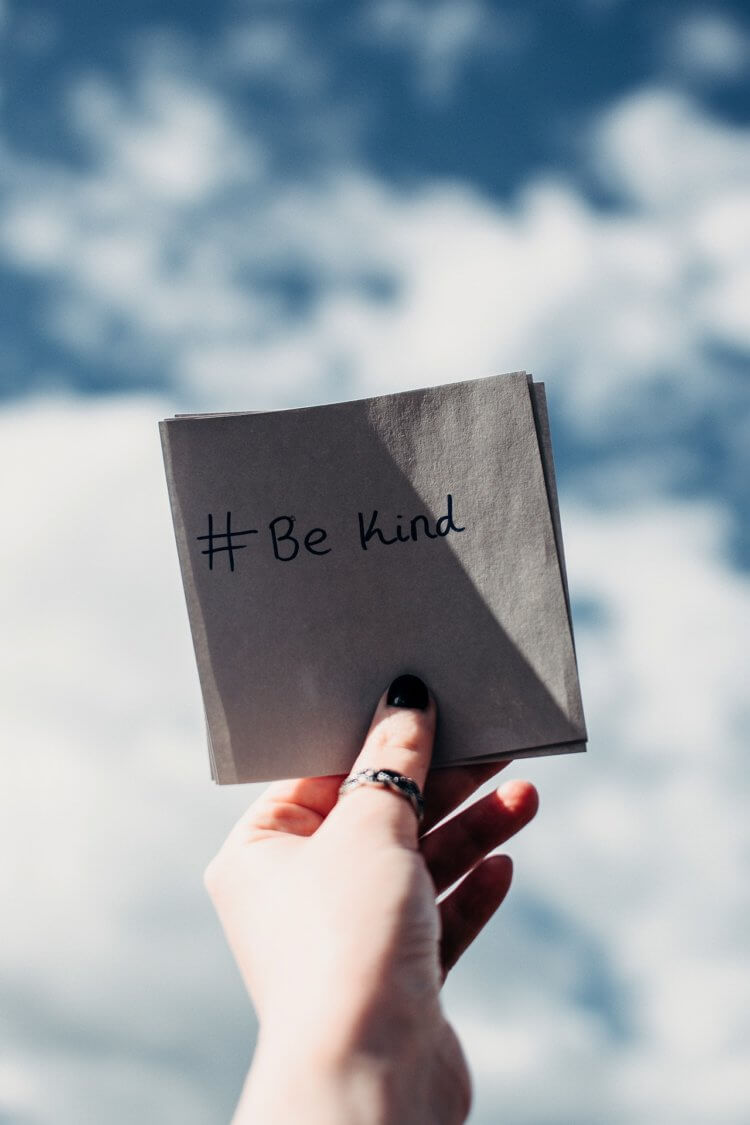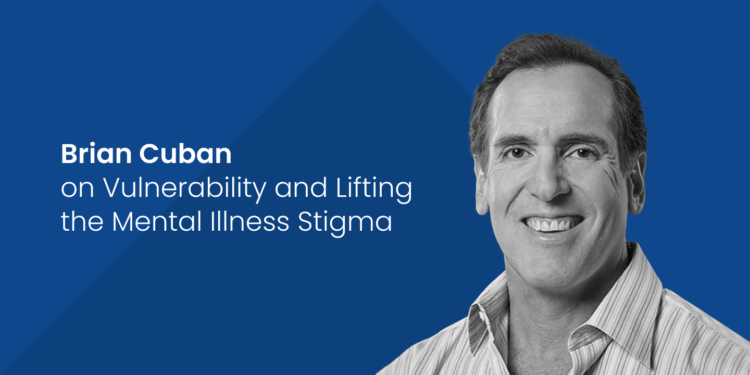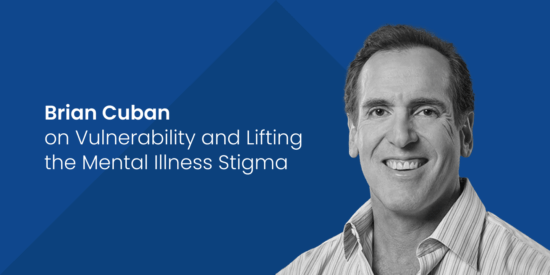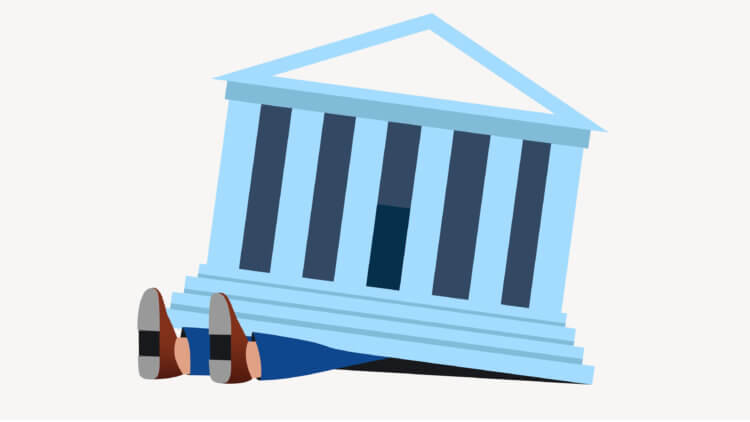Dallas-based attorney, bestselling author, and addiction recovery advocate Brian Cuban is no stranger to depression and mental health issues. His long-term recovery journey included visits to psychiatric facilities, a near-suicide attempt, and failed marriages—all of which revolved around drug and alcohol addiction. Since he went into recovery on April 8, 2007, Brian has redefined his life and purpose. He spent the last decade (and more) sharing his story and tirelessly advocating for mental health and addiction treatment—both inside and outside the legal profession.
Recently, we had the privilege of chatting with Brian about what struggling legal professionals can do to start their recovery journeys. He emphasized the power of vulnerability, compassion, and empathy when it comes to mental health. Brian also spoke about how the legal industry can continue to lift the stigma around mental health and addiction.
Advice to struggling legal professionals
See the strength in vulnerability

“Vulnerability is a strength. There are a lot of different ways that vulnerability is a strength for lawyers in their practices. But it is also a strength in taking care of ourselves. We spend so much time taking care of our clients that we don’t take care of ourselves. And it becomes a paradox because when we allow ourselves to be vulnerable, to take care of ourselves, then we think we’re weak.”
Recognizing the cycle of shame
“Fears go with shame and stigma. Who would want a person full of shame, right? If I feel shame, other people must see shame in me. Other people must feel shameful for me, which is projection [in psychology]. We project out our worst fears, and we forget that we are not our thoughts.
Because all we can see is the moment—and that fear and shame become a skin-tight suit that we wear everywhere, projecting out that everyone can see it.”
Have compassion for yourself
“Wherever you are in your journey, whether it’s alcohol, whether it’s [drugs] or whatever it is, be compassionate to yourself. And just try every day to find that one thing you’re passionate about that can turn things around. Because there is no magic pill for this. There is no magic pill for recovery.
We all have to be compassionate with ourselves because there is just no way to tell when that moment will happen. Be compassionate to yourself and stay alive because that is the [one thing] we need.”
Know you are not alone

“Don’t cut yourself off from family and find a compassionate community that you can speak to. [Your community may change] from day to day. But have people you can talk to. If you’re ready [to start your recovery], make sure you have people around you who are ready to help you down that road.
There are always people who care even when we don’t think so.
You don’t have to feel guilty of hurting others [and of] letting other people down. There are a lot of people living in the world ‘no one cares’ when people do care.”
How the legal industry can lift the mental illness and addiction stigma
Recognize the impact of the pandemic on mental health
“Social isolation is a major correlating factor and trigger in depression, drinking, and substance use.
People who may be predisposed [to addiction], all of a sudden, they’re drinking a little more. [They] may not have qualified for an alcohol use disorder pre-pandemic, but now the social isolation has tipped [them] into [having] an alcohol use disorder.
So [they] may have [had] a low-grade depression. It may be tipping now into moderate depression because of the social isolation.
Not only does the pandemic impact the people who are already in the middle of [depression and substance abuse issues], but it also impacts the people who were [on] the cusp, who are now tipping over into these types of issues at a more serious level.”
Make sure lawyers feel safe
“On the most basic level, a lawyer has to feel safe. Do your lawyers really feel safe? And is your message inconsistent with what is going on in your firm? It boils down to really those two things: Do lawyers feel safe in their jobs if they seek help? [Do they feel safe] if they reach out about another lawyer who’s struggling and don’t have to feel like a rat there?
Do your lawyers feel they can be vulnerable within the firm structure? Do your lawyers feel there will be no consequences [for being vulnerable]? And is your messaging [about these issues] consistent?”
The power of empathy

“Keys to finding a more joyful state: Empathy. Empathy, because you can’t tell somebody who’s in the middle of a depression.
You can’t make someone ready [to start their recovery journey]. [But] you can always control your actions; you can always let them know you are there.”
Tell your story—even anonymously
“Stand up and be heard. Because [when] we tell our stories, that is one of the strongest proponents of change—people hearing stories.
We all have a story, but not everyone wants to tell their story. And that’s fine. The legal profession needs more people telling [their stories], but there’s nothing wrong if you don’t want to do it. But you can tell your story anonymously as well. Telling your story doesn’t have to [mean] putting a name and face to it.”
Be aware of privilege in recovery
“There are all kinds of privileges in recovery that people don’t have. There’s skin color privilege. There is demographic, social, demographic, and financial privilege. There is family privilege because a lot of people don’t have that don’t have those close families.
How do we resonate with those people? How do we connect with the people who feel truly alone, people who come from broken or single-parent homes, or people who are incarcerated? It’s a challenge, but there are always people who care even when we don’t think so.”
You may like these posts
Redefining redemption and forgiving yourself
“Redemption for me is: How do you let that [shame] go? And become and redefine yourself as a person. For me, that is redemption: Redefining [shame] and forgiving myself. Allowing myself to redeem through current acts. However you define redemption, there is only one prerequisite. For [redemption] to happen, be above ground.”
We published this blog post in May 2021. Last updated: .
Categorized in: Uncategorized







